-
 Bitcoin
Bitcoin $79,492.4535
-3.58% -
 Ethereum
Ethereum $1,516.4298
-7.62% -
 Tether USDt
Tether USDt $0.9990
-0.06% -
 XRP
XRP $1.9577
-4.22% -
 BNB
BNB $574.1615
-1.27% -
 USDC
USDC $1.0000
0.00% -
 Solana
Solana $111.2145
-6.76% -
 Dogecoin
Dogecoin $0.1535
-4.44% -
 TRON
TRON $0.2369
0.42% -
 Cardano
Cardano $0.5980
-5.79% -
 UNUS SED LEO
UNUS SED LEO $9.3579
-0.04% -
 Chainlink
Chainlink $12.0119
-4.83% -
 Avalanche
Avalanche $18.1080
-2.38% -
 Toncoin
Toncoin $2.9208
-8.49% -
 Hedera
Hedera $0.1695
-1.22% -
 Stellar
Stellar $0.2271
-6.69% -
 Shiba Inu
Shiba Inu $0.0...01156
-3.38% -
 Sui
Sui $2.0849
-7.59% -
 MANTRA
MANTRA $6.4007
-0.44% -
 Bitcoin Cash
Bitcoin Cash $287.2509
-7.02% -
 Litecoin
Litecoin $72.6683
-6.76% -
 Polkadot
Polkadot $3.4315
-7.29% -
 Dai
Dai $0.9999
-0.02% -
 Bitget Token
Bitget Token $4.2151
-0.50% -
 Ethena USDe
Ethena USDe $0.9986
-0.03% -
 Hyperliquid
Hyperliquid $13.9275
0.80% -
 Pi
Pi $0.5873
-8.79% -
 Monero
Monero $199.8428
-2.41% -
 Uniswap
Uniswap $4.9736
-7.44% -
 OKB
OKB $52.0285
-3.09%
What is the difference between a limit order and a market order for a DOGE contract?
Limit orders guarantee price but not execution, while market orders guarantee execution but not price; slippage, the price difference between expected and actual execution, is more common with market orders.
Mar 16, 2025 at 07:26 am
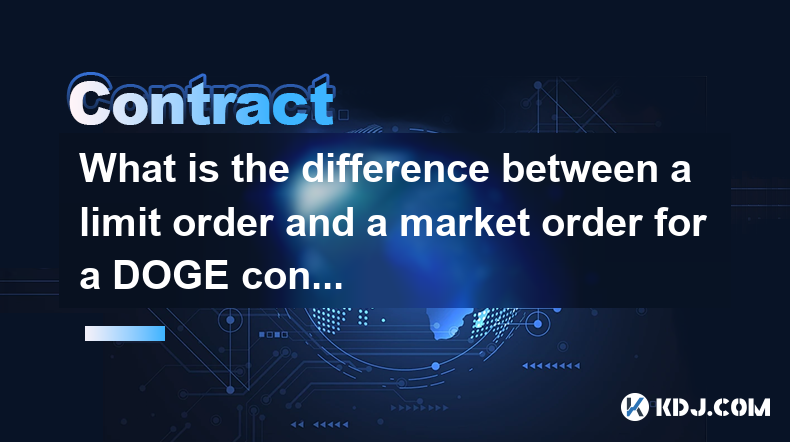
Key Points:
- Limit Orders: Specify the exact price at which you want to buy or sell a DOGE contract. They guarantee the price but not the execution.
- Market Orders: Buy or sell a DOGE contract at the best available price immediately. They guarantee execution but not the price.
- Slippage: The difference between the expected price and the actual execution price, more prevalent with market orders.
- Order Book: The collection of limit orders waiting to be filled, influencing market order execution prices.
- Trading Fees: Both order types typically incur fees, which can vary depending on the exchange.
What is the difference between a limit order and a market order for a DOGE contract?
Understanding the nuances between limit and market orders is crucial for successful DOGE contract trading. Both aim to facilitate buying or selling, but their mechanisms differ significantly, impacting price and execution certainty.
Limit Orders: Precision and Patience
A limit order for a DOGE contract allows you to specify the exact price at which you're willing to buy (limit buy) or sell (limit sell). If the market price reaches your specified limit, your order will be executed. If the price doesn't reach your limit before your order expires (or is canceled), your order remains unfilled. This offers price certainty but doesn't guarantee execution. You may miss out on the opportunity if the price doesn't move as expected.
Market Orders: Speed and Uncertainty
In contrast, a market order for a DOGE contract executes immediately at the best available price. This means your order is filled instantly, guaranteeing execution. However, you relinquish control over the exact price. Market orders are best used when speed is paramount, such as during periods of high volatility. The price you get might be less favorable than anticipated, especially during rapid price movements.
The Role of the Order Book
Both order types interact with the order book, a constantly updating list of all outstanding limit orders on the exchange. Market orders are filled by matching against existing limit orders in the order book. A large market order can significantly impact the market price due to the immediate demand or supply it creates. Limit orders add to the order book, waiting to be matched with incoming market orders.
Slippage: The Price Discrepancy
Slippage is the difference between the expected price of your order and the actual execution price. Market orders are more susceptible to slippage, particularly during volatile periods or when large orders are placed. Limit orders minimize slippage risk because you dictate the price. However, even limit orders can experience slippage if the market moves significantly before your order is filled.
Trading Fees: A Universal Cost
Both limit and market orders incur trading fees, charged by the cryptocurrency exchange. These fees vary depending on the exchange, trading volume, and other factors. While the fees are generally the same regardless of order type, understanding the fee structure is essential for effective cost management. Consider these fees when calculating potential profits or losses.
Choosing the Right Order Type
The optimal order type depends on your trading strategy and market conditions. If you prioritize price certainty and are willing to wait, a limit order is preferable. If you need immediate execution and are less concerned about the exact price, a market order is the better choice. Consider your risk tolerance and the current market volatility when making your decision.
Understanding Order Expiration and Cancellation
Most exchanges allow you to set an expiration time for your limit orders. This prevents orders from remaining open indefinitely. You can also cancel limit orders at any time before they are filled, offering flexibility in managing your positions. Market orders are typically executed instantly and cannot be canceled once submitted.
Advanced Order Types
Beyond basic limit and market orders, many exchanges offer more sophisticated order types, such as stop-loss orders and trailing stop orders. These orders help manage risk by automatically placing a market order when the price reaches a certain level. Exploring these advanced options can enhance your trading strategy.
Common Questions:
Q: Can I modify a limit order after placing it?
A: Yes, most exchanges allow you to modify (change the price or quantity) or cancel a limit order before it is executed. However, market orders cannot be modified or canceled once submitted.
Q: What happens if my limit order isn't filled?
A: If your limit order isn't filled before its expiration time (or you cancel it), your order is simply removed from the order book. You'll need to place a new order if you still wish to buy or sell at your desired price.
Q: Are there any fees associated with canceling an order?
A: Most exchanges do not charge fees for canceling orders. However, it's always advisable to check your exchange's fee schedule to confirm this.
Q: Which order type is better for scalping DOGE?
A: Market orders are generally preferred for scalping due to the need for immediate execution. However, the high risk of slippage needs to be considered.
Q: How does leverage affect limit and market orders for DOGE contracts?
A: Leverage magnifies both profits and losses. When using leverage, both limit and market orders carry increased risk. The price movements needed to trigger a limit order or the slippage on a market order will have a proportionally larger impact on your account balance.
Disclaimer:info@kdj.com
The information provided is not trading advice. kdj.com does not assume any responsibility for any investments made based on the information provided in this article. Cryptocurrencies are highly volatile and it is highly recommended that you invest with caution after thorough research!
If you believe that the content used on this website infringes your copyright, please contact us immediately (info@kdj.com) and we will delete it promptly.
- The market capitalization of Nillion's NIL token has experienced a significant downturn since its launch on March 25, 2025.
- 2025-04-11 03:40:12
- World Liberty Financial Launches USD1 Stablecoin Backed by President Donald Trump
- 2025-04-11 03:40:12
- World Liberty Financial Launches USD1 Stablecoin Backed by President Trump
- 2025-04-11 03:35:12
- Chronicle Raises $12M in Seed Funding Round to Expand Its Blockchain Data Network
- 2025-04-11 03:35:12
- Shiba Inu (SHIB) Investors Have a New Opportunity to Accumulate the Token
- 2025-04-11 03:30:12
- USD1 Stablecoin Launches Targeting Institutional Investors
- 2025-04-11 03:30:12
Related knowledge
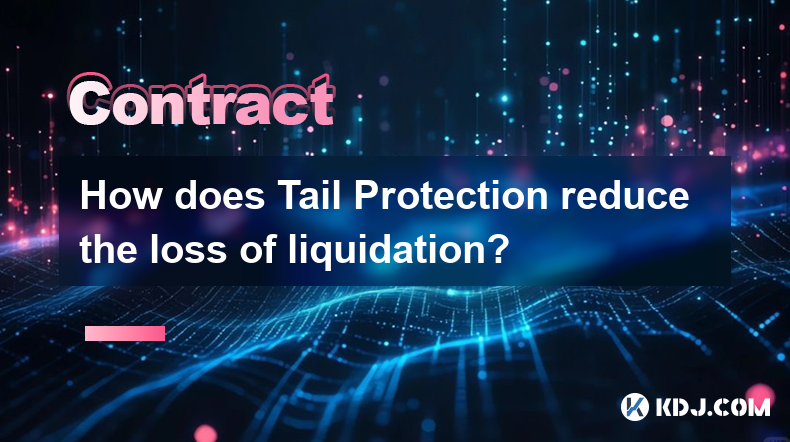
How does Tail Protection reduce the loss of liquidation?
Apr 11,2025 at 01:50am
Introduction to Tail Protection in CryptocurrencyTail Protection is a mechanism designed to mitigate the risks associated with liquidation in cryptocurrency trading. Liquidation occurs when a trader's position is forcibly closed by the exchange due to insufficient margin to cover potential losses. This often happens in leveraged trading, where traders b...

Why does a perpetual contract have no expiration date?
Apr 09,2025 at 08:43pm
Perpetual contracts, also known as perpetual futures or perpetual swaps, are a type of derivative product that has gained significant popularity in the cryptocurrency market. Unlike traditional futures contracts, which have a fixed expiration date, perpetual contracts do not expire. This unique feature raises the question: why does a perpetual contract ...
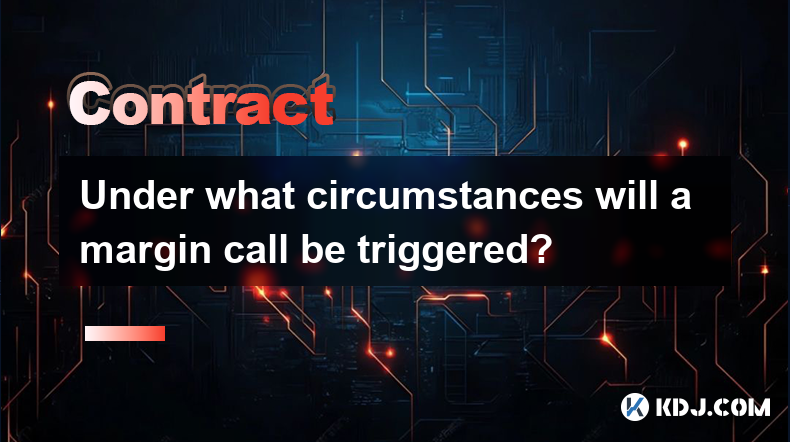
Under what circumstances will a margin call be triggered?
Apr 08,2025 at 02:43pm
Margin trading in the cryptocurrency market allows traders to borrow funds to increase their trading position, potentially amplifying both gains and losses. A critical aspect of margin trading is understanding when a margin call might be triggered, as it can significantly impact your trading strategy and financial health. In this article, we will explor...
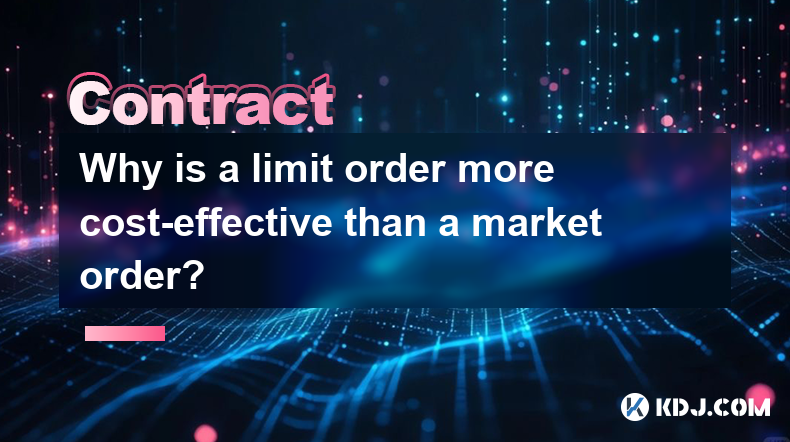
Why is a limit order more cost-effective than a market order?
Apr 10,2025 at 01:35pm
Why is a limit order more cost-effective than a market order? When trading cryptocurrencies, choosing the right type of order can significantly impact the cost-effectiveness of your transactions. Two common types of orders are limit orders and market orders. Understanding the differences between them can help you make more informed decisions and potenti...
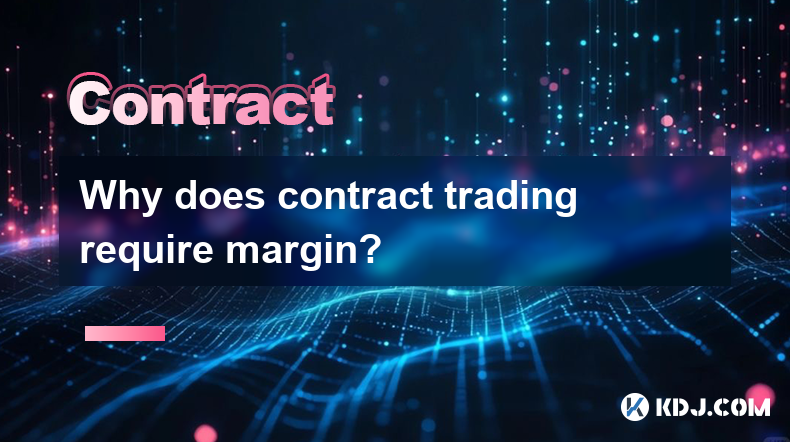
Why does contract trading require margin?
Apr 08,2025 at 02:07pm
Introduction to Contract TradingContract trading in the cryptocurrency market refers to the practice of trading futures or options contracts. These contracts allow traders to speculate on the future price of a cryptocurrency without actually owning the underlying asset. One of the key components of contract trading is the use of margin. Margin is essent...
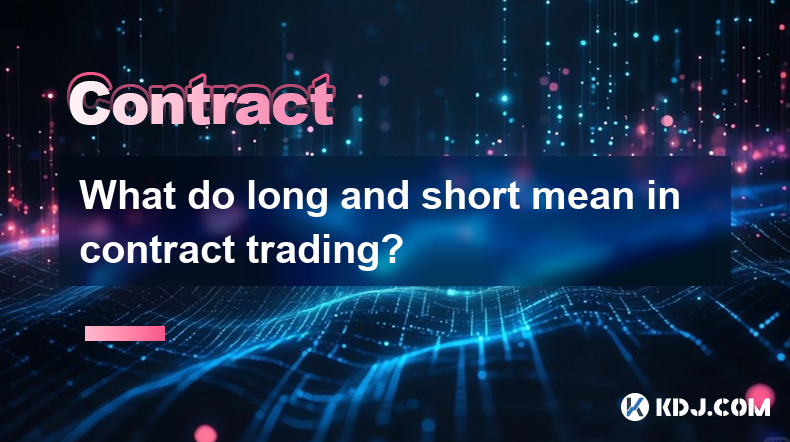
What do long and short mean in contract trading?
Apr 10,2025 at 06:42am
In the world of contract trading within the cryptocurrency circle, the terms 'long' and 'short' are fundamental concepts that every trader needs to understand. Long and short positions refer to the strategies traders use to bet on the future price movements of cryptocurrencies. When you take a long position, you are essentially betting that the price of...

How does Tail Protection reduce the loss of liquidation?
Apr 11,2025 at 01:50am
Introduction to Tail Protection in CryptocurrencyTail Protection is a mechanism designed to mitigate the risks associated with liquidation in cryptocurrency trading. Liquidation occurs when a trader's position is forcibly closed by the exchange due to insufficient margin to cover potential losses. This often happens in leveraged trading, where traders b...

Why does a perpetual contract have no expiration date?
Apr 09,2025 at 08:43pm
Perpetual contracts, also known as perpetual futures or perpetual swaps, are a type of derivative product that has gained significant popularity in the cryptocurrency market. Unlike traditional futures contracts, which have a fixed expiration date, perpetual contracts do not expire. This unique feature raises the question: why does a perpetual contract ...

Under what circumstances will a margin call be triggered?
Apr 08,2025 at 02:43pm
Margin trading in the cryptocurrency market allows traders to borrow funds to increase their trading position, potentially amplifying both gains and losses. A critical aspect of margin trading is understanding when a margin call might be triggered, as it can significantly impact your trading strategy and financial health. In this article, we will explor...

Why is a limit order more cost-effective than a market order?
Apr 10,2025 at 01:35pm
Why is a limit order more cost-effective than a market order? When trading cryptocurrencies, choosing the right type of order can significantly impact the cost-effectiveness of your transactions. Two common types of orders are limit orders and market orders. Understanding the differences between them can help you make more informed decisions and potenti...

Why does contract trading require margin?
Apr 08,2025 at 02:07pm
Introduction to Contract TradingContract trading in the cryptocurrency market refers to the practice of trading futures or options contracts. These contracts allow traders to speculate on the future price of a cryptocurrency without actually owning the underlying asset. One of the key components of contract trading is the use of margin. Margin is essent...

What do long and short mean in contract trading?
Apr 10,2025 at 06:42am
In the world of contract trading within the cryptocurrency circle, the terms 'long' and 'short' are fundamental concepts that every trader needs to understand. Long and short positions refer to the strategies traders use to bet on the future price movements of cryptocurrencies. When you take a long position, you are essentially betting that the price of...
See all articles




















![🐢Super Mario World Koopa Troopa 100% 96⭐️ + Coin [Ao Vivo] 🐢Super Mario World Koopa Troopa 100% 96⭐️ + Coin [Ao Vivo]](/uploads/2025/04/10/cryptocurrencies-news/videos/super-mario-koopa-troopa-coin-ao-vivo/image-1.webp)


































































